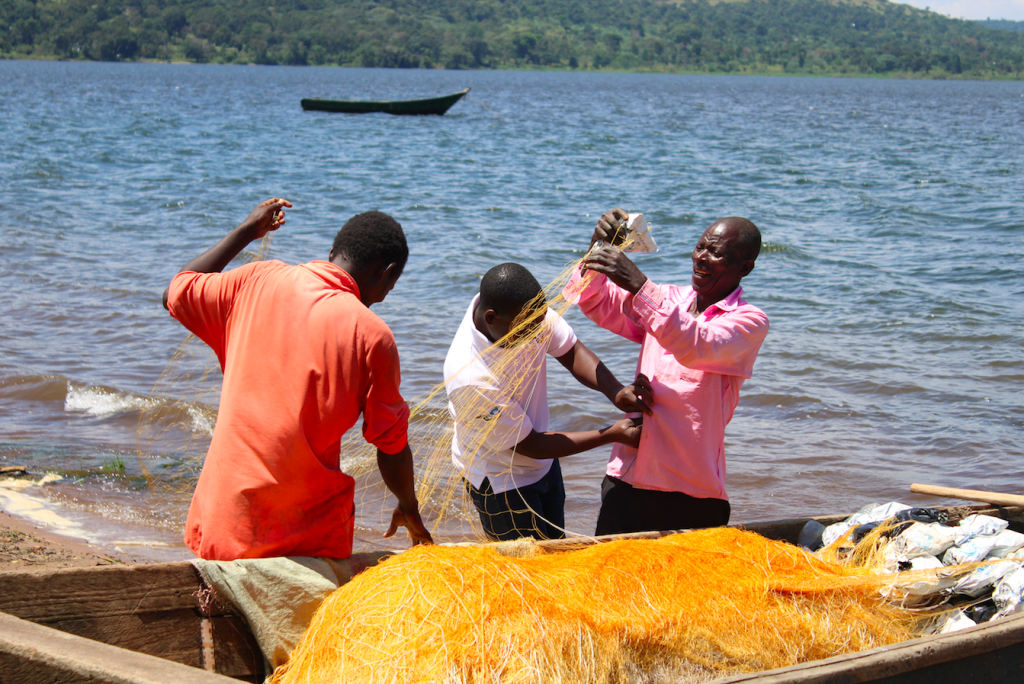by Denise K. Najuuko
Water pollution is the contamination of groundwater or surface water by pollutants, for example, agricultural run-off, industrial waste, and many other things. Kampala is surrounded by wetlands, Lake Victoria, and water drains such as Nakivubo, and Lubigi. These water bodies are economically important and used for human welfare, but they are getting increasingly polluted due to human activities thus leading to a fast decline in the sanitation of the city. It is also important to note that only 17% of the Ugandan population have access to reliable and safe water sources, according to water.org.
The increasing population in the city with the rural-to-urban migration is one of the major causes of water pollution in Kampala. This leads to poor housing facilities and the formation of slums. There is poor sanitation behaviour in these slums, including poor disposal of garbage, for example, dumping rubbish in the drains, leading to waste disposal in lakes and rivers. Many people are increasingly settling along the shore of Lake Victoria in areas at Gaba, Luzira, Kasenyi, and many others for both domestic and economic reasons. These areas are mainly used as fishing sites and developed into trading centres to sell fish, food, and other items to the people living around them and tourists visiting the landing sites. Due to poor or indiscriminate disposal of human waste, and domestic waste materials such as plastics into the lake through these activities, the contamination rate is rising. The increasing number of industries and factories in the capital city, of which many are at the shores of the lakes and rivers, is also a cause for the rising levels of contamination. These industries do not treat their waste properly before it is disposed of. Studies have shown that the water in Namanve and Nakivubo is contaminated with pharmaceutical and industrial waste, respectively.
Water pollution is affecting the health of the population due to the use of contaminated water for domestic purposes and leading to the contraction of diseases for example, cholera, typhoid and diarrhoea, which kills 33 Ugandan children every day, as reported by UNICEF. It also affects the eco-system by killing water species and some plants because the water is also used for irrigation. There are media reports of mass death of fish in Lake Victoria, death of livestock that have consumed polluted water, and poor growth of plants on farms. In addition, Uganda’s poorly constructed sewage systems are a carrier of polluted water. This water can make its way into farms in urban areas, which can be deadly to the crops being grown. This means that there is a significant decrease in the amount of food produced and thus pose a risk to the food security in the country.

The Food and Agriculture Organization of the United Nations recently celebrated World Food Day, where the theme was “Water is life, water is food. Leave no one behind.” During these celebrations, farmers were urged to find out where they could save water and conduct a water audit, check for leaks or overflows frequently, fix them, and insulate their pipes to save energy. During rainier seasons, they are urged to collect rainwater or fill water storage reservoirs to use when there is less water available. The farmers were also advised to adopt sustainable farming practices that are better for the environment and promote more effective use of water as well as more protection against climate change. These practices will also improve on the food security in the world.
The Ugandan Government has worked hard to curb the water pollution problem. It has enacted legislation on water use and waste disposal like the Water Act, Cap 152, and the National Environment Act, 2019. It has also established relevant regulatory bodies, for example, the National Water and Sewerage Corporation, which provides water and sewerage services to most areas that receive piped water, and the National Environment Management Authority, which handles all the issues related to environmental management in the country. There is also The Land Act that puts all rights of water resources in the power of the government though it does not stop the owner of the land where the water resource is from using the water in a way that does not endanger the resource. Unfortunately, many Ugandan citizens, especially those living in rural areas, do not follow these laws as they assume that the government is stopping them from living freely and they go about life as they wish without much thought to the negative environmental impact.
The government can also educate the masses on the dangers of water pollution and teach them the importance of proper utilization of water facilities. The citizens need to know the impact of poor waste disposal habits and learn the right way to dispose of domestic and agricultural waste. This will lead to improved lifestyles and healthier, more sanitary communities if the lessons are taken to heart. The citizens also need to adhere to rules that the government has put in place to be able to preserve what good is left in the water resources in the country. There should also be ramifications set up that will impact the offender, for example, fines, jail time, and community service. This will encourage the citizens to conform to set laws. Some of the polluted resources can also be rehabilitated, for example, through the removal of the wastes that have been dumped in them.
The author is an Intern at Regenerate Africa. She is a student at Saint Mary’s University in Halifax, Canada, pursuing a Diploma in Engineering, and a Bachelor of Science in Environmental Science.



2 Replies to “WATER POLLUTION: A THREAT TO FOOD SECURITY IN UGANDA”hubli
It’s a very beautiful write up, however if we concentrated more on how water pollution threatens food security, (this should be the problem) how it affects food security, I love the fact that you considered the solutions or the recommendations, when making intext citing, include the year aswell Eg, where there is UNICEF, you need to include the year of publication such as UNICEF, 2012. Otherwise its a beautiful article
How can we hold corporations accountable for their role in water pollution, and what measures can be put in place to ensure they are incentivized to prioritize environmental protection over profit?”,
“refusal